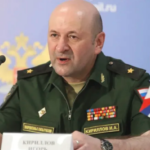I’ve always believed in the power of information. It shapes how we see the world. But in conflict, truth and lies can mix up. That’s why Facebook’s parent, Meta, banned Russian state media like RT.

This move by Meta is to stop false info and pro-Russian propaganda on social media. The Russia-Ukraine war is fought in real life and online. Information control is key in this fight.
Meta’s decision to block some media is a tough call. It shows the challenge social media faces. They must balance free speech with stopping lies. We must be careful and look for true info to understand our world.
Social Media Platforms Ramp Up Content Moderation
As the Russia-Ukraine conflict grows, social media platforms are under pressure. They’re working hard to stop the spread of false information and pro-Russian propaganda. Meta has banned RT and other Russian state media to help. This move is part of a bigger effort to keep harmful content off their sites.
Addressing Misinformation and Propaganda Concerns
Big social media platforms are stepping up their content moderation. They’re using new ways to fight misinformation and propaganda linked to the Russia-Ukraine conflict. They’re checking facts more, making it easier for users to report problems, and removing content that breaks their rules.

This move towards online censorship has started a big debate. People are wondering if it’s right to limit free speech to stop harmful information warfare. The role of social media in shaping public opinion and global events is getting more complex.
Meta Bans RT, Other Russian State Media on Facebook
Facebook owner Meta has banned RT News and other Russian state media from its platforms. This move is to fight misinformation and propaganda in the Russia-Ukraine conflict. It’s part of Meta’s effort to stop harmful content that could fuel information warfare.
The ban on RT News and other Russian state media is a big step for Meta. It’s seen as a good move to stop misinformation and propaganda. But, it also raises questions about freedom of speech and the truth on social media.
Russia-Ukraine Conflict Sparks Online Censorship Debate
The ongoing conflict between Russia and Ukraine has sparked a heated debate. It’s about online censorship and the balance between free speech and stopping misinformation. Social media platforms like Meta have banned Russian state media outlets. Critics say this could be a bad start for content moderation and worry about freedom of expression.
Balancing Freedom of Speech and Information Warfare
Meta’s decision to block RT News and other Russian media is aimed at stopping pro-Russian narratives. But, some experts and civil liberties advocates are worried. They think this could lead to more strict content censorship, which might block important discussions and diverse views on the conflict.
This debate shows how hard it is to balance free speech, national security, and online disinformation. Supporters of the ban say it’s needed to fight propaganda and protect the public. But, opponents fear it could harm free expression, even in a crisis.






